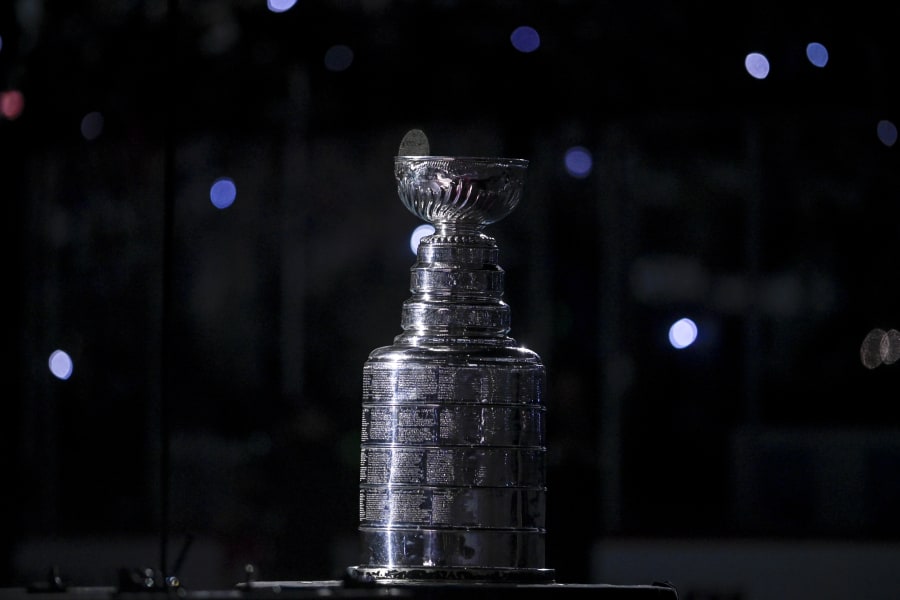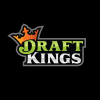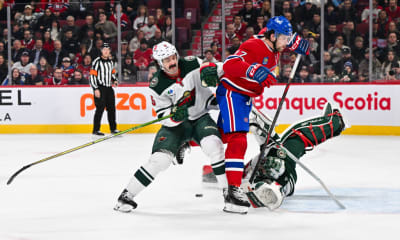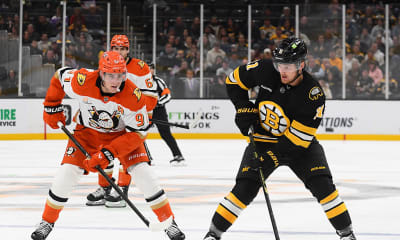Tip: Who Will Win the Stanley Cup?

Current bets
From high-octane offenses to stingy defenses and clutch goaltending, the playoff field is stacked with compelling narratives. We break down each matchup, assessing how the teams stack up and what it will take to advance in the grueling postseason.
Tampa Bay Lightning

The Tampa Bay Lightning are a powerhouse, boasting one of the league’s most lethal forward groups. Nikita Kucherov, arguably the best playmaker in hockey, leads the charge with Brayden Point and Jake Guentzel forming a devastating top line. Brandon Hagel’s two-way excellence and Anthony Cirelli’s defensive prowess add depth, while newcomers Oliver Bjorkstrand and Yanni Gourde bolster the bottom six. On defense, Victor Hedman remains a Norris Trophy-caliber force, supported by the shutdown pairing of Ryan McDonagh and Erik Cernak. Andrei Vasilevskiy, back to his Vezina-winning form, anchors the crease, giving Tampa Bay a championship pedigree. However, the lack of a secondary scoring defenseman is a notable gap, especially after trading Mikhail Sergachev. Hedman’s defensive play, while improved, isn’t elite, and the depth defenders may struggle against top offenses. If Tampa Bay can overcome these weaknesses, their offensive firepower and playoff experience make them a top contender, but they’ll need to dominate in high-scoring games to compensate for defensive lapses.
Florida Panthers

The Florida Panthers, fresh off a championship, are built for playoff success. Their top line of Aleksander Barkov, Matthew Tkachuk, and Sam Reinhart is among the NHL’s best, combining skill, grit, and two-way play. Depth forwards like Carter Verhaeghe, Sam Bennett, and Anton Lundell provide scoring and defensive reliability, while Eetu Luostarinen adds shutdown capability. Gustav Forsling is a defensive rock on the blue line, and Sergei Bobrovsky’s steady goaltending gives Florida a strong backbone. The Panthers’ physical, forechecking style wears down opponents, making them a nightmare in a seven-game series. However, their defense has question marks beyond Forsling. Aaron Ekblad’s defensive regression is a concern, and Niko Mikkola, while solid, doesn’t match the elite shutdown defenders of past champions. Florida’s offense can likely compensate, but facing high-powered attacks like Tampa Bay or Toronto will test their back end. If Bobrovsky maintains his form and the top line continues to dominate, Florida has a real shot at going back-to-back, but they’ll need their depth players to step up defensively to counter elite offenses.
Dallas Stars

The Dallas Stars are an offensive juggernaut, with a forward group that runs deep. Jason Robertson leads the way, supported by Roope Hintz, Wyatt Johnston, and veterans like Matt Duchene and Jamie Benn. Mikko Rantanen’s addition has elevated their scoring potential, while Mason Marchment and Mikael Granlund add grit and playmaking. Miro Heiskanen and Thomas Harley drive the offense from the blue line, and Jake Oettinger’s goaltending is among the league’s best when he’s on. Dallas’s ability to roll four lines and generate relentless pressure makes them a playoff threat. However, their defensive depth is a glaring issue, especially with Heiskanen’s early-season absence. Options like Ilya Lyubushkin and Cody Ceci lack the quality needed for a top-four role, and Esa Lindell alone can’t shore up the back end. The forwards’ defensive contributions are also limited, with Hintz struggling in shutdown situations. Dallas will need to outscore their problems, but against defensively sound teams, their one-dimensional approach could falter. If Heiskanen returns to form and Oettinger stands tall, the Stars are a serious contender, but their defensive frailties could be their undoing.
Toronto Maple Leafs

The Toronto Maple Leafs boast an elite offensive core led by Auston Matthews and Mitch Marner, with William Nylander and John Tavares adding firepower. Matthew Knies has emerged as a strong two-way presence, and the addition of Chris Tanev and Brandon Carlo has bolstered their defense, making them tougher to score against. Anthony Stolarz has been a revelation in goal, providing the stability Toronto has lacked in past playoffs. The Leafs’ top-end talent and improved defensive structure give them a legitimate chance to break their playoff curse. However, the absence of a true No. 1 defenseman is a persistent issue. Jake McCabe and Morgan Rielly are solid but lack the offensive dynamism of elite blueliners. Depth scoring is another concern, as the drop-off after the top five forwards is steep, with players like Bobby McMann struggling to contribute. If Matthews and Marner go cold, Toronto lacks the secondary scoring to compensate. To succeed, the Leafs will need Stolarz to steal games and their stars to deliver under pressure, but their lack of depth could prove costly against well-rounded opponents.
Winnipeg Jets

The Winnipeg Jets are anchored by Connor Hellebuyck, one of the NHL’s premier goaltenders, capable of single-handedly winning series. Josh Morrissey is a dynamic No. 1 defenseman, and Dylan Samberg has emerged as a shutdown force. Up front, Kyle Connor and Mark Scheifele form a potent one-two punch, with Gabriel Vilardi and Nikolaj Ehlers providing offensive depth. The Jets’ balanced roster and strong special teams make them a tough playoff opponent. However, their lack of a top-six shutdown forward is a significant weakness. Adam Lowry is reliable but not elite in that role, and Vilardi doesn’t fit defensively. The blue line also lacks offensive punch beyond Morrissey, with Neal Pionk falling short of championship-caliber production. Winnipeg’s depth is solid, but their top-end talent isn’t as dominant as other contenders. To go deep, Hellebuyck will need to be at his Vezina-best, and Connor and Scheifele must elevate their games. The Jets have the tools to make a run, but their lack of elite forward depth and secondary scoring from the blue line could limit their ceiling against top teams.
Los Angeles Kings

The Los Angeles Kings are a defensive juggernaut, led by Drew Doughty, Mikey Anderson, and Vladislav Gavrikov on the blue line. Trevor Moore and Phillip Danault provide elite defensive forward play, while Quinton Byfield and Anze Kopitar anchor the top lines. Darcy Kuemper’s recent resurgence in goal has made the Kings a formidable playoff team, reminiscent of their championship runs in 2012 and 2014. Their ability to suffocate opponents with tight checking and strong goaltending is a proven playoff formula. However, their offense is a question mark. Byfield and Adrian Kempe are talented but not yet at the level of franchise forwards, and the forward group lacks the firepower to match Western Conference heavyweights. The blue line also struggles offensively, with Doughty no longer a scoring threat and prospect Brandt Clarke unproven defensively. The Kings will need to win low-scoring games, relying on Kuemper and their defensive core. If Byfield takes a step forward, they could surprise, but their offensive limitations may prevent them from keeping pace with high-scoring contenders.
Colorado Avalanche

The Colorado Avalanche are driven by Nathan MacKinnon and Cale Makar, the NHL’s premier forward-defenseman duo. Valeri Nichushkin and Logan O’Connor add depth, and Gabriel Landeskog’s potential return could be a game-changer. Devon Toews is a reliable shutdown defender, and Mackenzie Blackwood has thrived in goal, giving Colorado a well-rounded roster. Their speed, skill, and playoff experience make them a perennial threat. However, the loss of Mikko Rantanen has left a void, with Martin Necas unable to fully replace his production. Defensive depth is another concern, as Samuel Girard lacks offensive spark, and Josh Manson’s defensive reliability has waned. The forward group also misses a true shutdown presence, with Artturi Lehkonen falling short. Colorado’s top-end talent can outscore most teams, but their defensive lapses and lack of secondary star power could be exposed against balanced opponents. If Landeskog returns to form and Blackwood stays hot, the Avalanche are a Cup favorite, but their depth issues could derail them in a grueling playoff run.
Edmonton Oilers

The Edmonton Oilers are powered by Connor McDavid and Leon Draisaitl, two of the NHL’s best players, with Evan Bouchard providing offensive dynamism from the blue line. Zach Hyman and Ryan Nugent-Hopkins add scoring depth, and Jake Walman’s acquisition has helped stabilize the defense. Edmonton’s high-octane offense can overwhelm opponents, making them a dangerous playoff team. However, Mattias Ekholm’s absence is a massive blow, leaving Darnell Nurse and Brett Kulak as less-than-ideal top-four options. Goaltending remains the biggest concern, with Stuart Skinner struggling this season and faltering in past playoffs. The Oilers’ defensive structure is shaky without Ekholm, and their reliance on outscoring opponents may not hold up against defensively sound teams. McDavid and Draisaitl give Edmonton a high ceiling, but their goaltending and defensive depth are significant liabilities. To win the Cup, Skinner must rebound, and the supporting cast needs to step up defensively. The Oilers have the talent to make a run, but their vulnerabilities could be exploited in the postseason.
Vegas Golden Knights

The Vegas Golden Knights are a well-constructed team with few weaknesses. Shea Theodore leads a strong defensive core alongside Noah Hanifin, Alex Pietrangelo, and Brayden McNabb. Up front, William Karlsson’s defensive play anchors the forward group, while Pavel Dorofeyev, Ivan Barbashev, and Reilly Smith provide scoring depth. Vegas’s balanced roster and championship experience make them a playoff force. However, they lack the elite top-end talent of other contenders, with only a few players reaching “ideal” status compared to teams like Tampa Bay or Florida. Pietrangelo’s defensive decline is a concern, and the forward group, while deep, doesn’t have a true game-breaker. Vegas will need to rely on their system and depth to outwork opponents, as they did in 2023. Goaltending, led by Adin Hill, is solid but not spectacular, and they’ll need him to elevate his game. The Knights are built for the playoffs, but without a standout star, they may struggle against teams with stronger top lines. If their depth players perform, Vegas could repeat, but they’ll need everything to click.
Carolina Hurricanes

The Carolina Hurricanes are a defensive powerhouse, led by Jaccob Slavin, one of the NHL’s best shutdown defensemen. Seth Jarvis has emerged as a two-way star, while Jordan Staal and Jordan Martinook provide elite defensive forward play. Shayne Gostisbehere adds offensive punch from the blue line, and the goaltending tandem of Frederik Andersen and Pyotr Kochetkov is reliable. Carolina’s relentless forechecking and depth make them a tough out. However, their lack of offensive star power is a persistent issue. Andrei Svechnikov and Sebastian Aho are talented but not at the level of elite franchise forwards, and the forward group lacks a true game-breaker. The Hurricanes’ system compensates for this, but in tight playoff games, they may struggle to generate enough scoring. Slavin’s limited offensive output also puts pressure on the forwards to produce. Carolina’s depth and defensive structure give them a strong foundation, but they’ll need unexpected offensive contributions to go deep. If Jarvis or Svechnikov elevates their game, the Hurricanes could surprise, but their lack of a top-tier star may cap their potential.
Minnesota Wild

The Minnesota Wild are led by Kirill Kaprizov, a superstar forward whose offensive brilliance makes him a game-changer. Joel Eriksson Ek is a reliable shutdown center, and Jonas Brodin provides defensive stability on the blue line. Marcus Foligno’s resurgence and Marco Rossi’s emergence have bolstered the forward depth, giving Minnesota a competitive edge despite an up-and-down season. When healthy, the Wild’s core is formidable, and their workmanlike style suits playoff hockey. However, their blue line lacks offensive punch, with Jared Spurgeon and Brock Faber unable to provide consistent scoring. Faber’s second-half struggles have exposed this weakness, and rookie Zeev Buium, while promising, isn’t ready to fill the gap. Goaltending is another concern, as Filip Gustavsson’s inconsistent play ranks him among the weakest playoff starters. The Wild’s defensive structure can mask some of these issues, but their lack of offensive balance may hinder them against high-scoring teams. To make a deep run, Kaprizov must carry the offense, and Gustavsson needs to find consistency. Minnesota has the pieces to compete, but their reliance on a few key players and lack of elite goaltending could limit their postseason success.
Washington Capitals

The Washington Capitals have defied expectations, with a retool that has yielded breakout performances. Alex Ovechkin continues to score at an elite level, while Pierre-Luc Dubois and Tom Wilson form a formidable shutdown line. John Carlson and Jakob Chychrun provide offensive spark from the blue line, and depth players like Aliaksei Protas and Connor McMichael have stepped up. Logan Thompson’s stellar goaltending has been a revelation, giving Washington a championship-caliber backbone. Their depth and veteran leadership make them a sneaky playoff threat. However, questions linger about the sustainability of their top forwards. Dubois and Wilson lack a history of elite play, and Ovechkin’s age raises concerns about his durability. Carlson’s defensive game has waned, and the forward core isn’t as dominant as other contenders. The Capitals’ success hinges on their ability to maintain their regular-season form, but facing top teams could expose their limitations. If Thompson continues to shine and the veterans deliver, Washington could surprise, but their lack of a true elite core may prevent them from going all the way. Their depth gives them a fighting chance, but they’ll need everything to break their way.
Ottawa Senators

The Ottawa Senators are a young team making their first playoff appearance in years, led by a strong defensive foundation. Linus Ullmark has been a game-changer in goal, while Jake Sanderson and Artem Zub form a reliable shutdown pair. Thomas Chabot provides offensive flair from the blue line, and Dylan Cozens’ addition has bolstered the forward depth. Brady Tkachuk and Tim Stützle lead the offense, bringing energy and skill. Ottawa’s defensive structure and goaltending give them a chance to compete in the postseason. However, their offensive top end is a concern. Tkachuk and Stützle are talented but haven’t reached elite status, and the supporting cast—Drake Batherson, Claude Giroux, and Shane Pinto—lacks the scoring punch of championship teams. The Senators’ forward group is thin beyond their top two, making them reliant on their stars to produce. To succeed, Ullmark must steal games, and Tkachuk and Stützle need to elevate their play. Ottawa’s youth and inexperience could be a liability against battle-tested opponents, but their defensive core gives them a foundation. While they’re not Cup favorites, the Senators could pull off an upset if their goaltending and defense hold firm.
New Jersey Devils

The New Jersey Devils remain competitive despite Jack Hughes’ absence, with Nico Hischier stepping up as a franchise forward. Jesper Bratt and Timo Meier provide offensive spark, while Dougie Hamilton drives the blue line with his scoring ability. Jacob Markstrom’s steady goaltending and depth contributions from Johnathan Kovacevic and Cody Glass give New Jersey a balanced roster. Their speed and skill make them a dangerous playoff team. However, Hughes’ absence leaves a massive hole, weakening their forward depth. Stefan Noesen and Dawson Mercer haven’t provided enough secondary scoring, and the support core is underwhelming. Hamilton’s defensive play is a significant liability, as he struggles against top forwards. The Devils’ lack of an elite shutdown forward further exposes their blue line. Without Hughes, New Jersey lacks the top-end talent to match other contenders, and their depth issues could be exploited in tight games. Markstrom will need to be exceptional, and Hischier must carry the offense. The Devils have potential for the future, but their current roster is incomplete. They could win a round if their stars align, but a deep run seems unlikely without more offensive firepower.
St. Louis Blues

The St. Louis Blues have improved under Jim Montgomery, with a defensive core led by Colton Parayko, Philip Broberg, and Dylan Holloway. Jordan Binnington remains a solid goaltender, and young forwards like Jimmy Snuggerud and Zachary Bolduc have added depth. Robert Thomas has emerged as a key playmaker, giving the Blues a foundation for playoff success. Their defensive structure and physical style suit the postseason, and their youth offers upside. However, the Blues lack the offensive star power of top contenders. Thomas is strong but not elite, and Jordan Kyrou and Pavel Buchnevich have been inconsistent. Holloway’s injury and the unproven nature of prospects like Snuggerud add uncertainty. The blue line, while defensively sound, lacks offensive dynamism, with Broberg still developing. Binnington’s inconsistency in past playoffs is another concern, as he’ll need to be at his best to steal games. The Blues have the talent to compete, but their ceiling is limited by their lack of game-breakers. If Thomas and Kyrou elevate their play and Binnington stands tall, St. Louis could surprise, but they’re more likely to be a first-round exit against stronger teams.
Montreal Canadiens

The Montreal Canadiens are a surprise playoff team, driven by rookie Lane Hutson’s offensive brilliance on the blue line. Nick Suzuki leads the forwards with two-way play, and Sam Montembeault’s goaltending has been strong enough to steal games. Juraj Slafkovsky and prospects like Ivan Demidov offer hope for the future, and Montreal’s work ethic makes them a pesky opponent. Their youth and energy have carried them this far, exceeding expectations. However, the Canadiens are the weakest playoff team, with significant gaps. Hutson’s defensive game is still developing, and David Guhle isn’t an elite shutdown defender. The forward group lacks a true No. 1 star, with Suzuki falling just short of franchise-forward status. Beyond him, the offensive depth is thin, and the team lacks shutdown forwards to handle top lines. Montreal’s inexperience could be a liability in the high-pressure playoffs, and their defensive weaknesses may be exposed by stronger offenses. Montembeault will need to be exceptional, and Hutson must continue to shine offensively. While the Canadiens have a bright future, they’re not yet built for a deep run. A first-round upset is possible, but their lack of elite talent likely limits them to an early exit.
Betting Tips and Conclusion
The 2025 NHL playoff matchups offer intriguing betting opportunities, with three standout picks based on the analysis of the first-round series.
New Jersey Devils to win the series @ +240 bet365
Despite missing Jack Hughes, the Devils are a dangerous underdog with Nico Hischier stepping up as a franchise forward, Jesper Bratt’s offensive spark, and Jacob Markstrom’s reliable goaltending. Their speed and skill can exploit Carolina’s lack of elite offensive star power, as Andrei Svechnikov and Sebastian Aho have yet to reach game-breaker status. The Hurricanes’ defensive system, led by Jaccob Slavin, is formidable, but their scoring struggles in tight playoff games could be their downfall. New Jersey’s ability to generate high-danger chances and Markstrom’s potential to steal games make them capable of upsetting Carolina. At 3.40, the odds offer excellent value for a Devils series win, as their talent and resilience could carry them to a surprising victory in six or seven games.
Dallas Stars to win the series @ +126 FanDuel
The Stars’ deep forward group, led by Jason Robertson and Roope Hintz, and Jake Oettinger’s top-tier goaltending give them an edge over Colorado. While the Avalanche boast Nathan MacKinnon and Cale Makar, their defensive depth issues and Mikko Rantanen’s absence weaken their roster. Dallas’s relentless pressure and balanced attack can exploit Colorado’s thin back end, making the +126 odds attractive for an outright series win. If Miro Heiskanen returns to form, the Stars are well-positioned to advance.
Minnesota Wild +1.5 games @ -112 FanDuel
The Wild, powered by Kirill Kaprizov’s superstar offense and Joel Eriksson Ek’s defensive grit, are built for playoff battles. Vegas’s balanced roster and experience make them favorites, but their lack of elite top-end talent and Alex Pietrangelo’s defensive decline give Minnesota opportunities to steal games.
Current bets

+21. Play responsibly.
Best sports bonuses of the week















